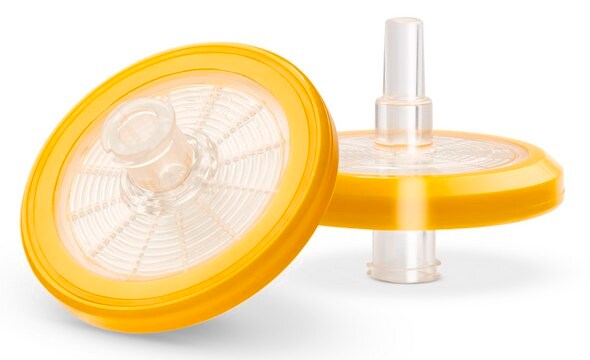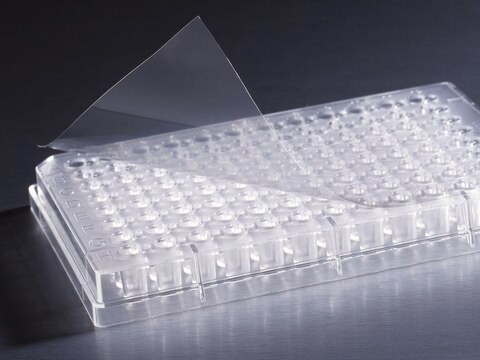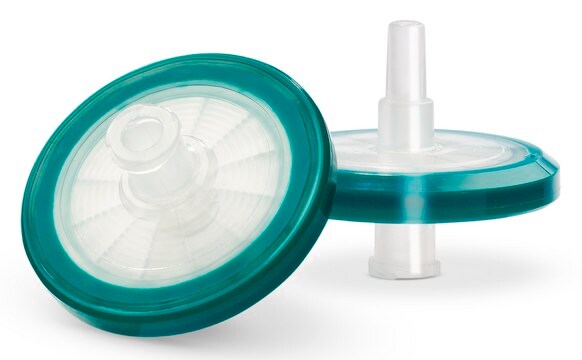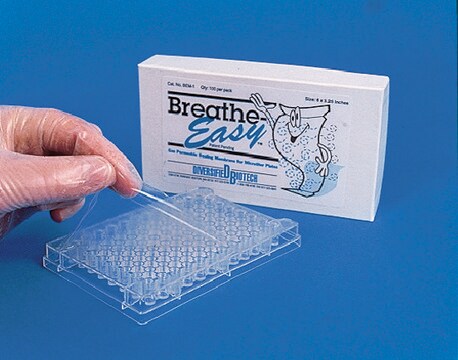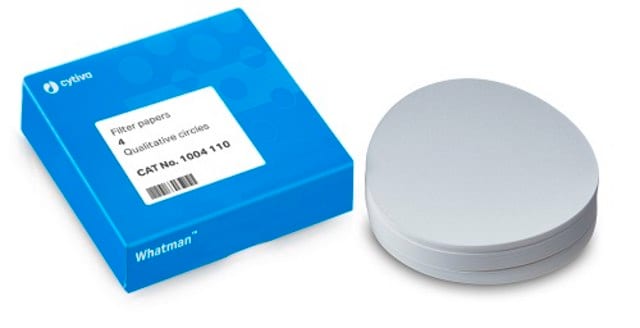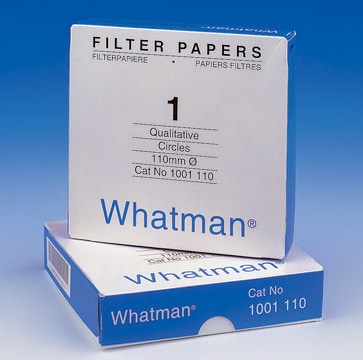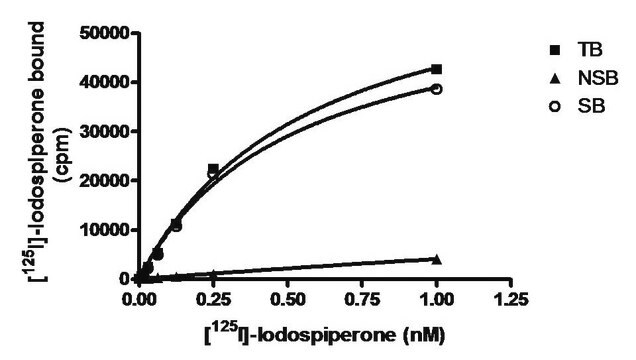Recommended Products
biological source
human
Quality Level
recombinant
expressed in Chem-1 cells
form
liquid
manufacturer/tradename
ChemiScreen
Chemicon®
technique(s)
ligand binding assay: suitable (GTPγS)
radioligand binding assay (RLBA): suitable
NCBI accession no.
UniProt accession no.
General description
Human MC3
The melanocortins, the peptides alpha-, beta- and gamma-melanocyte-stimulating hormone (MSH), bind to a family of five Gs-coupled GPCR receptors (MCRs) and play important roles in energy balance, reproductive function, pigmentation and inflammation (Gantz and Fong, 2003). MC3R is expressed in the CNS, including the hypothalamus, and appears to play a role in energy homeostasis as indicated by the observation that MC3R-null mice have increased subcutaneous fat, a loss of lean body mass, and reduced energy expenditure (Butler et al., 2000; Chen et al., 2000). Macrophages also express MC3R, which together with MC1R mediates the anti-inflammatory activity of melanocortins in animal models of peritonitis and myocardial infarct (Getting et al., 2003; 2004). Chemicon′s MC3R membrane preparations are crude membrane preparations made from our proprietary stable recombinant cell lines to ensure high-level of GPCR surface expression; thus, they are ideal HTS tools for screening of antagonists of MC3R interactions with melanocortins. The membrane preparations exhibit a Kd of 0.4 nM for [125I]-MSH. With 10.0 mg/well MC3R Membrane Prep and 0.25 nM [125I]-MSH, a greater than 7-fold signal-to-background ratio is obtained.
Application
Human MC3 GPCR membrane preparation for Radioligand binding Assays & GTPgammaS binding.
Radioligand binding assay, and GTPgammaS binding.
Biochem/physiol Actions
- GPCR Class: A
- Protein Target: MC3
- Target Sub-Family: Melanocortin
Specifications
Membranes are mixed with radioactive ligand and unlabeled competitor (see Figures 1 and 2 for concentrations tested) in binding buffer in a nonbinding 96-well plate, and incubated for 1-2 h. Prior to filtration, a GF/C 96-well filter plate is coated with 0.33% polyethyleneimine for 30 min, then washed with 50mM HEPES, pH 7.4, 0.5% BSA. Binding reaction is transferred to the filter plate, and washed 9 times (1 mL per well per wash) with Wash Buffer. The plate is dried and counted.Binding buffer: 25 mM Hepes, pH 7.0, 1 mM MgCl2, 1.5 mM CaCl2 2H2O, 100mM NaCl, 0.2% BSA, Protease Inhibitor, filter and stored at 4 °C.
Radioligand: [125I] MSH (Perkin Elmer# NEX352)
Wash Buffer: 25 mM Hepes, pH 7.0, 1 mM MgCl2, 1.5 mM CaCl2 2H2O, 100mM NaCl, 0.2% BSA, filtered and stored at 4°C. One vial contains enough membranes for at least 200 assays (units), where an unit is the amount of membrane that will yield greater than 4-fold signal:background with 125I-labeled MSH at 0.25 nM
Radioligand: [125I] MSH (Perkin Elmer# NEX352)
Wash Buffer: 25 mM Hepes, pH 7.0, 1 mM MgCl2, 1.5 mM CaCl2 2H2O, 100mM NaCl, 0.2% BSA, filtered and stored at 4°C. One vial contains enough membranes for at least 200 assays (units), where an unit is the amount of membrane that will yield greater than 4-fold signal:background with 125I-labeled MSH at 0.25 nM
Physical form
Liquid in packaging buffer: 50 mM Tris pH 7.4, 10% glycerol and 1% BSA no preservatives.Packaging method: Membranes protein were adjusted to 0.5 mg/ml in 1 ml packaging buffer, rapidly frozen, and stored at -80°C.
Storage and Stability
Maintain frozen at -70°C for up to 2 years. Do not freeze and thaw.
Legal Information
CHEMICON is a registered trademark of Merck KGaA, Darmstadt, Germany
Disclaimer
Unless otherwise stated in our catalog or other company documentation accompanying the product(s), our products are intended for research use only and are not to be used for any other purpose, which includes but is not limited to, unauthorized commercial
Storage Class Code
12 - Non Combustible Liquids
WGK
WGK 2
Certificates of Analysis (COA)
Search for Certificates of Analysis (COA) by entering the products Lot/Batch Number. Lot and Batch Numbers can be found on a product’s label following the words ‘Lot’ or ‘Batch’.
Already Own This Product?
Find documentation for the products that you have recently purchased in the Document Library.
Our team of scientists has experience in all areas of research including Life Science, Material Science, Chemical Synthesis, Chromatography, Analytical and many others.
Contact Technical Service